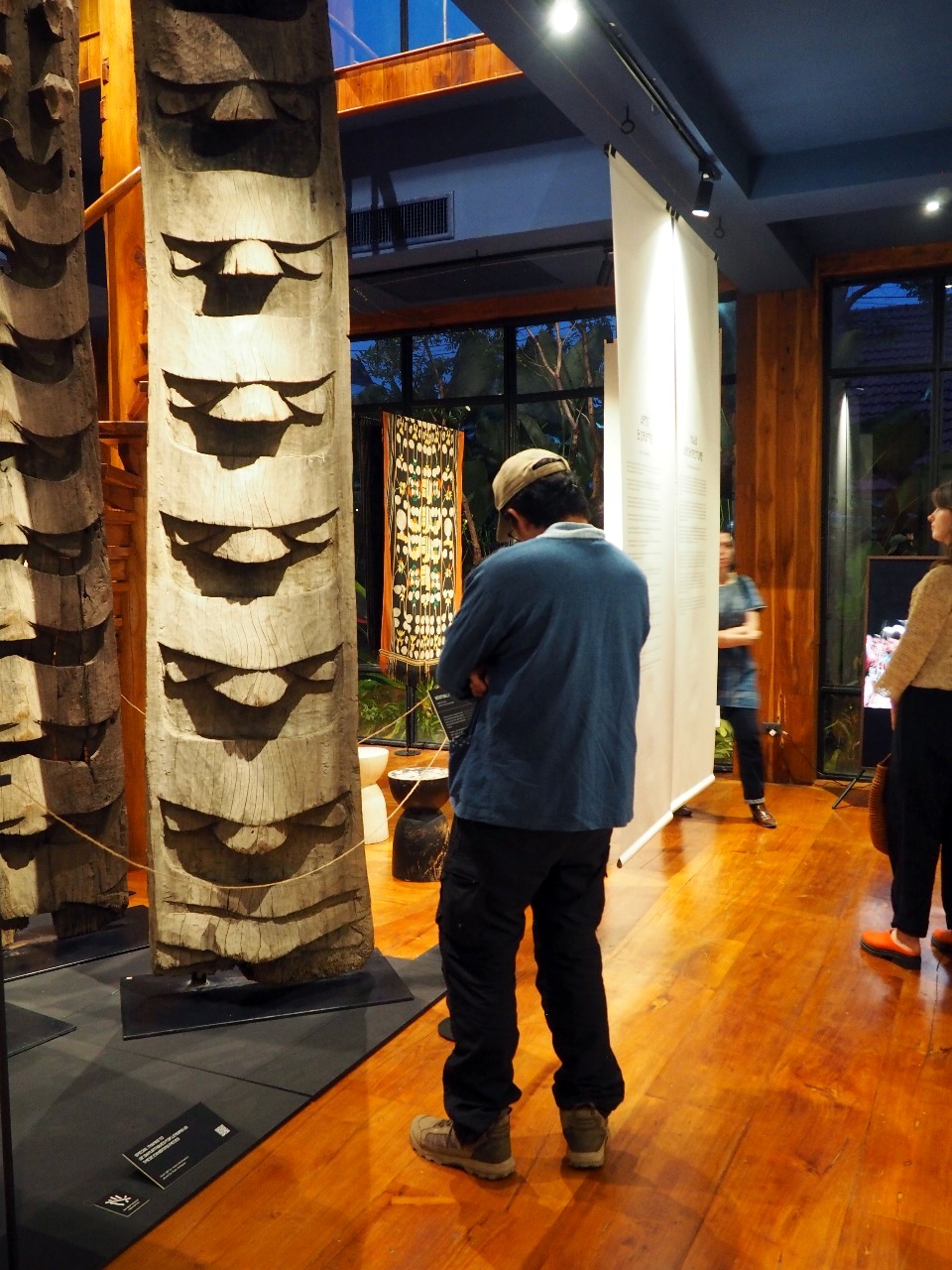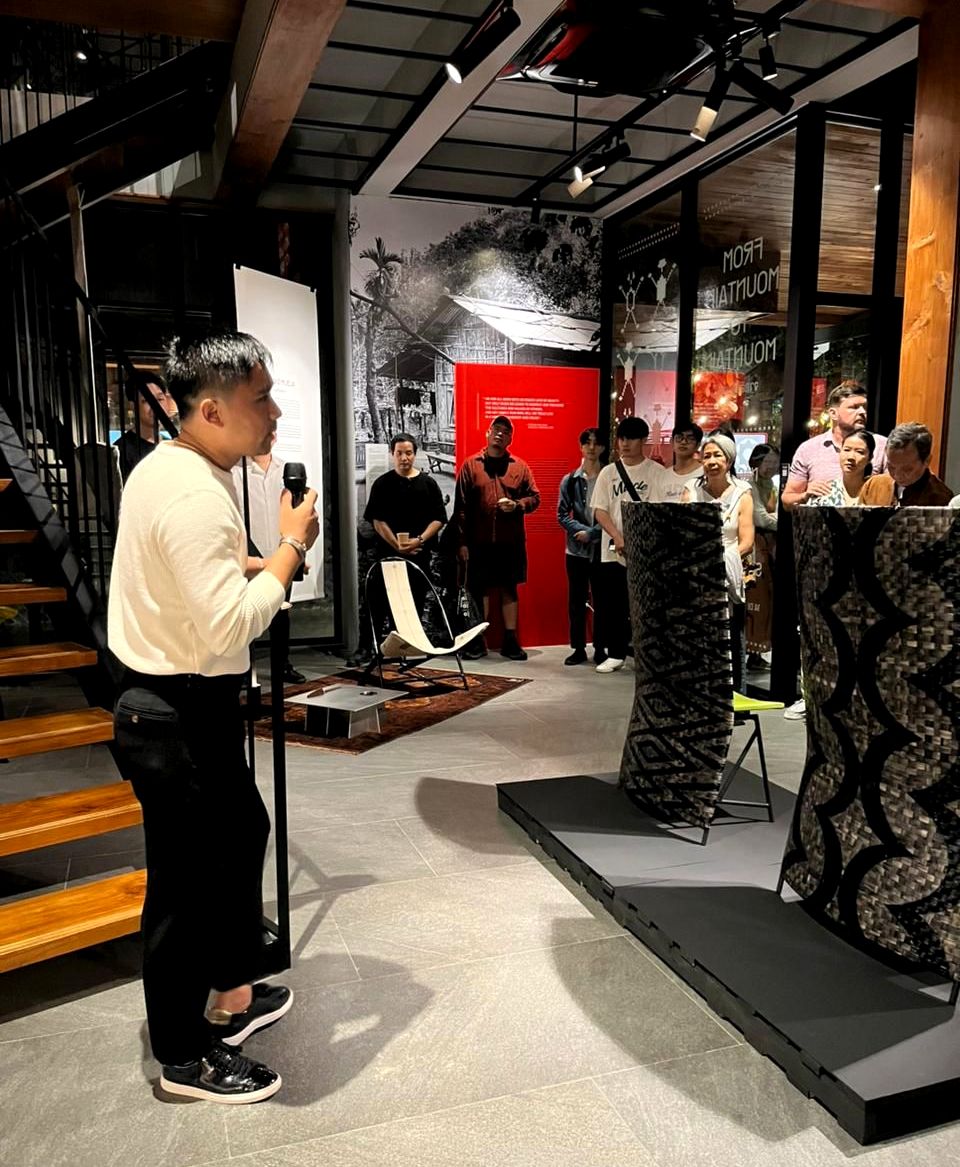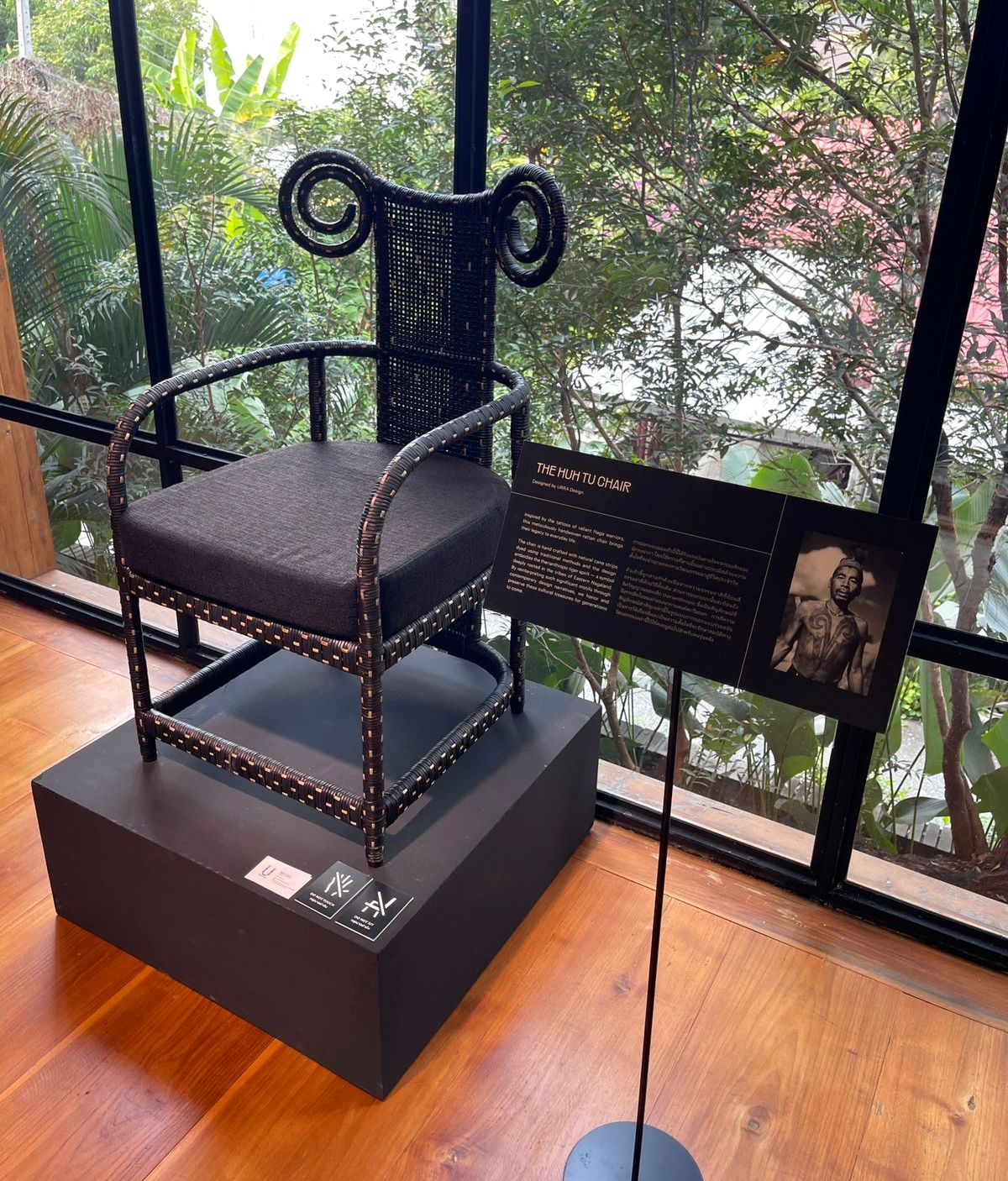SATURDAY, AUGUST 02, 2025
- Home
- Bridging cultures: Naga and Thai artistry celebrates creative force of collaboration
Bridging cultures: Naga and Thai artistry celebrates creative force of collaboration
From ‘Mountain to Mountain: Stories, Crafts and Collaborations from and Beyond Nagaland’ is currently underway at the Kalm Village in Chiang Mai, Thailand.
Published on Feb 13, 2025
Share

A visitor admiring an artefact from Nagaland on display at the ongoing Mountain to Mountain exhibition in Chiang Mai, Thailand.
- DIMAPUR — “Craftsmanship is central to Naga culture, intricately woven into our social and spiritual lives. These are not just mere creative expressions but also reflections of tribal identity, oral history, and ancestral pride. Today, Naga crafts blend ancient traditions with contemporary aesthetics, gaining global recognition.
- These art forms continue to thrive, embodying the enduring spirit and resilience of Nagaland while celebrating its rich heritage,” says Aku Zeliang, the principal designer of Cane Concept and founder of Urra Design.

Aku Zeliang interacting with visitors at the ongoing Mountain to Mountain exhibition in Chiang Mai, Thailand.
- From ‘Mountain to Mountain: Stories, Crafts and Collaborations from and Beyond Nagaland’ is currently underway at the Kalm Village in Chiang Mai, Thailand. The exhibition is a collaborative work among Heirloom Naga, Heirloom Naga Centre, Urra Design, celebrated master Thai designer Yothaka, and exciting emerging Thai designers Studio Mueja and Sukrachand.
- Opened on December 14, 2024, the event is scheduled to continue till March 18 next.
- This exhibition, Zeliang said, bridges the mountains of Nagaland and showcases not only cultural artefacts but also innovative creations in the spirit of Naga and Thai artistry.
- Zeliang, who has won the Elle Deco International Design Awards (EDIDA) ‘Young Talent of the Year 2022’, said: “The exhibition aims not only to showcase the beautiful art and culture of Nagaland but also to foster creative collaboration between cultures. We hope visitors will gain a deeper appreciation of diverse cultural values, craftsmanship, creativity, and ultimately practice empathy through learning about each other.”
- Expounding on the ongoing exhibition, he asserted that it presents an opportunity to glimpse two parallel modes of preservation and progression.
- Drawing inspiration from the mountains of Nagaland to the highlands of Chiang Mai, the exhibition highlights the rich stories, skilled crafts, and creative partnerships that bridge traditions and modernity, connecting communities across borders.

The Huh Tu chair by Urra Design on display at the ongoing Mountain to Mountain exhibition in Chiang Mai, Thailand.
- The exhibition, he detailed, is presented in two folds: history and contemporary crafts of Nagaland.
- Zeliang shared that the artefacts are exhibited in conjunction with the cross-cultural collaboration between designers from Nagaland and Thailand, working on collaborative identities that celebrate the creative force.
- About the collaborators
- Heirloom Naga, a contemporary textile studio founded by Jesmina Zeliang in 1993, seeks to revive ancestral skills and define a new approach for Naga indigenous crafts. Jesmina’s son, Aku, joined forces and founded Cane Concept and Urra Design in 2014, a multi-disciplinary design studio specialising in interior, furniture, and product designs, innovating decades of traditional craftsmanship in bamboo, cane, and woodwork. They opened the Heirloom Naga Centre in 2023.
- Yothaka, founded in 1989 by Thai furniture designer Suwan Kongkhunthian, was known initially for pioneering the use of water hyacinth in Thai furniture manufacturing and now for its intricate weaving techniques and new materials with an experimental Asian contemporary design rooted in traditional wisdom. As many intricate details cannot be replicated through industrial production methods, Yothaka employs a semi-industrial approach, investing years in training artisans into master craftsmen.
- Sukrachand was started by Robert Sukrachand—a Thai-American designer, craftsperson, and photographer. In 2021 he relocated his studio to Thailand to launch his new design company Pern Baan. His work has been featured in such publications as Interior Design, The New York Times Style Magazine, Vogue, Elle Decor, and Dwell, among others.
- Studio Mueja, founded by Rapeepat Kaewtip, is a brand born out of a deep passion for woodworking and handcrafted creations. The name Mueja, meaning "calloused hands," symbolises the hands of artisans that grow rough and textured through years of dedicated craftsmanship. Studio Mueja focuses on repurposing reclaimed wood from dismantled homes, transforming it into functional objects and thoughtfully designed pieces imbued with the soul of the original materials.

